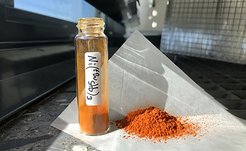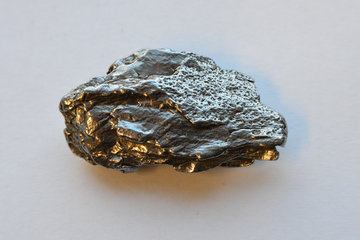Strem licenses new class of catalysts
Stable and easy-to-handle nickel complexes for practical application in nickel catalysis
The use of nickel as a catalyst for the formation of chemical bonds is of great importance to the chemical industry - applications range from the production of fine chemicals to the synthesis of pharmaceuticals, insecticides and pesticides. For the production of nickel complexes, industry has relied for many decades on nickel cyclooctadiene Ni(COD)2, a component discovered some 60 years ago at the Max-Planck-Institut für Kohlenforschung. Ni(COD)2 has since then proven to be a useful source, but requires extremely complex handling. The now licensed nickel complexes are more air and temperature stable than Ni(COD)2 and thus facilitate use in the laboratory.

Ni(COD)2 decomposes immediately in air and is very temperature sensitive. Therefore, gloveboxes with inert gas atmospheres or "Schlenk" techniques are required, which make it laborious to use and store. Researchers at the MPI für Kohlenforschung succeeded in developing a new series of Ni(0)-stilbene complexes that are stable to air and at higher temperatures than Ni(COD)2.
The new family of binary 16-electron Ni(0)-stilbene complexes, developed under the leadership of Josep Cornellà of the Max-Planck-Institut für Kohlenforschung, is stable at room temperature and in air for about one month. The properties are similar to the previously used - but unstable - nickel cyclooctadiene Ni(COD)2 in terms of ligand exchange, catalytic reactivity and kinetic profile. Handling in inert atmosphere and the use of Schlenk techniques are not required. The new complexes open up a wealth of catalytic transformations and are a simple, practical and versatile replacement for Ni(COD)2.
Max Planck Innovation, the technology transfer organization of the Max Planck Society, has now concluded the first non-exclusive licensing agreement of the novel catalysts with the US fine chemicals manufacturer Strem Chemicals, which will in future sell the substances to customers from science and research. “The interest after the Max-Planck-Institut's first publication on the novel catalysts was immense. With Strem Chemicals we have found an established and strong partner who makes the new catalysts accessible to scientific and industrial research. We will continue to offer field-exclusive licenses for future large-scale technical applications, ”said Lars Cuypers, Patent and License Manager at Max Planck Innovation.












